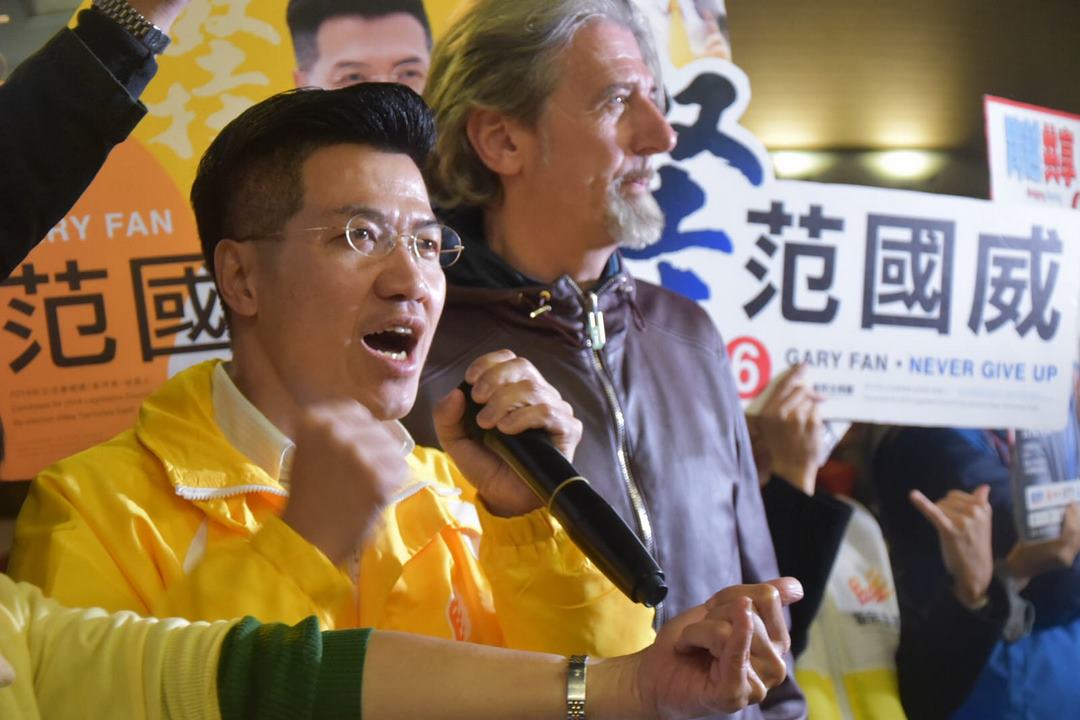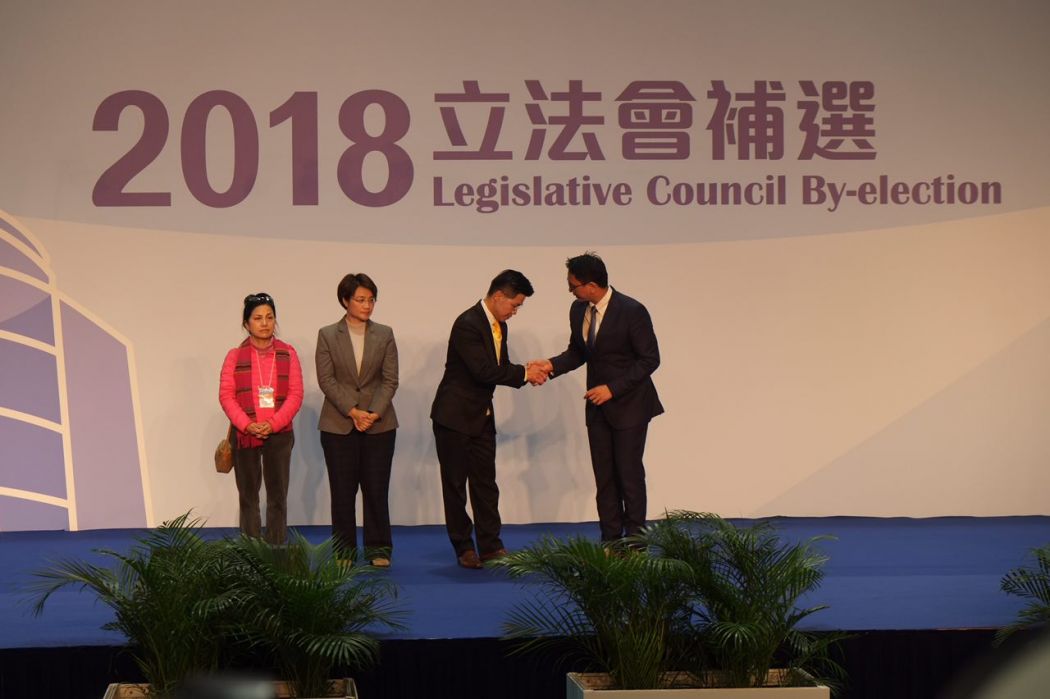New Territories East by-election victor Gary Fan secured the basic support of the pro-democracy but may have failed to win over the constituency’s large number of localist voters.
Neo Democrats’ candidate Fan, who won with 183,762 votes, had been positioning himself as a “pragmatic localist.” However, some localists had been urging Hongkongers not to vote for him, as they claim he did not support localist protesters.

Localist groups are pro-democracy but many consider traditional democratic activists and pan-democrats within the legislature to be ineffective. The camp is also tied with various movements related to the expansion of Hong Kong’s autonomy, for example advocating for city-state status or outright independence.
In the 2016 by-election, pro-democracy candidate Alvin Yeung received 160,880 votes, whilst localist candidate Edward Leung received 66,524 – a total of 227,404.
In the general legislative election that year, pro-democracy candidates overall received 336,212 votes, including 61,937 for localists. In comparison, Fan failed to secure the localist vote, although he saw enough support to pass the finish line.
Fan suffered a notable loss in the localist stronghold of Sheung Tak Estate in Tseung Kwan O. He received 1,712 votes at two polling stations in the area, although pro-democracy candidates won 3,700 votes there the 2016 race.

At Lee On Community Hall – another localist stronghold – Fan saw around 1,800 votes, much fewer when compared to the almost 6,000 gained by pro-democracy candidates in the 2016 election.
Asked about the lack of support from localists, Fan said: “We have to reflect on, and adjust, our district work to keep up with the times.”
External factors
Fan’s win may have benefited from two factors – the pro-Beijing camp failing to gain more votes, and non-affiliated candidate Christine Fong doubling her number of votes since her last outing.

The pro-Beijing camp did not see much change in terms of support since the 2016 race. In the February by-election that year 150,329 voters cast their ballot for Holden Chow. Whilst in the September general legislative election, major candidates of the camp received a combined 151,628 votes.
Bill Tang, who represented both the pro-Beijing DAB and FTU parties in Sunday’s election, received 152,904 votes – only slightly higher than in past races.
But Tang attributed his loss partially to a lack of a clear localist candidate: “It helped Gary Fan to gather votes to him.”
Fong, who received 33,424 and 34,544 votes in the two 2016 elections, managed to almost double her level of support on Sunday, obtaining 64,905 votes. Had more than 30,858 of Fong’s votes gone to Tang, then he could have emerged as the winner.

“Residents I met in local districts have told me my votes would increase… The large number of votes showed that society has room for lawmakers who work on livelihood issues,” she said, but admitted she expected more support.
The by-election was triggered after four lawmakers were ousted by the High Court following an interpretation of Article 104 of the Basic Law by Beijing. They were among six who faced legal action for inappropriately taking their oaths of office upon initially being elected in 2016. Ex-lawmakers Leung Kwok-hung and Lau Siu-lai are still appealing their disqualifications.
Not-for-profit, run by journalists and completely independent – thank you for following our election coverage. Contribute to our critical month-long HK$1m Funding Drive, help safeguard our independence and secure our operations for another year. Read how carefully we spend every cent in our Annual/Transparency Report.

